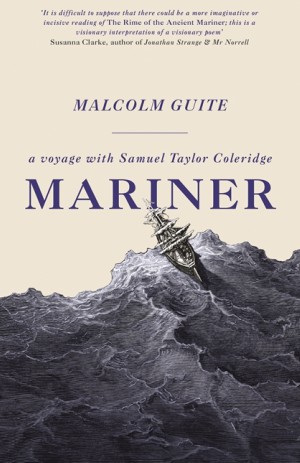Mariner: a voyage with Samuel Taylor Coleridge
Hugely creative and thought-provoking reading of the revolutionary poet and philosopher-theologian, told through his most famous poem
 Mariner: a voyage with Samuel Taylor Coleridge
Mariner: a voyage with Samuel Taylor Coleridge
By Malcom Guite
Hodder and Stoughton
ISBN 978 1 473 61105 4
Reviewer: Stephen Copson
At school we were treated to recitations of The Rime of the Ancient Mariner. Maybe for teenage boys then it held a frisson of Gothic horror, with the dead men standing upright and slimy things crawling on the sea and of course the “water, water, everywhere”. As for other poetic pearls cast before many teenage boys, I doubt it received the appreciation it deserved.
The author, Samuel Taylor Coleridge, was a visionary, a revolutionary poet and a philosopher-theologian. A type of Renaissance man, yet he also lacked confidence in his abilities, always subordinating himself to his friend William Wordsworth, co-author of the groundbreaking Lyrical Ballads of 1798.
Coleridge was possessed of an unrequited passion for Sarah Hutchison whilst he was already married with children, which caused him endless guilt as he was caught between twin powerful forces, unable to break free or give in. This in part led to his long addiction to large quantities of opium to dull the personal ache. That he was eventually able to face his problems makes his an odyssey of loss and ultimate redemption.
Malcolm Guite is a poet, priest and theologian. He uses the Rime as a lens through which to view Coleridge. He thinks the poem uncannily prescient in sketching out the contours of Coleridge’s life but he weaves the tale into a narrative of personal, ethical and theological dimensions. Coleridge’s striking language and imagery connects with modern day concerns. So the wanton slaying of the albatross illustrates the thoughtlessness of one mariner but also the carelessness with which humankind is wont to treat the creation. If there is much to enjoy in life, there is still evident a perverse desire to destroy.
Afflicted by the lethargy of self-abandonment, the Mariner is stripped of all his supports and comforts. Fellow crew members die. The ship becalms. There is nothing he can do to redeem the situation he has created. He is left to reflect bitterly on the results of his disastrous action. Guite traces Coleridge’s parallel life as he sinks beneath waves of disappointment and despair. Like the Mariner he is lost without hope. It is only when the point is reached that both accept “tis all of grace” that a healing way back is found.
This reading of Coleridge is hugely creative and thought-provoking. It is a powerful re-imagining. If at times the doppelganger theme seems a bit too neat to be true, Guite nonetheless explores the glories and shipwrecks of the life of this immensely talented man who had an uncanny knack of hurting those about whom he cared the most, thus reinforcing his sense of failure and helplessness.
In the end Coleridge was saved by his recognition of his need for help. Practically, he put himself into the care of a doctor who created a regime in his own home to control the addiction. Whilst to Wordsworth came national acclaim as a poet with a tendency to panentheism, Coleridge returned to the God of his clerical father to become a profound Christian thinker, although his literary and theological insights were perhaps only fully appreciated after his death.
Stephen Copson is a regional minister of the Central Baptist Association
Baptist Times, 14/07/2017